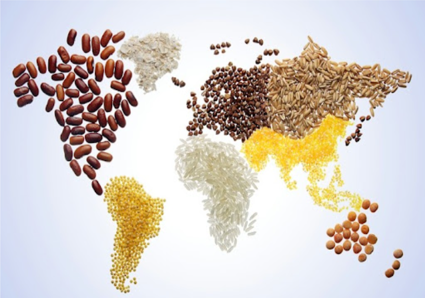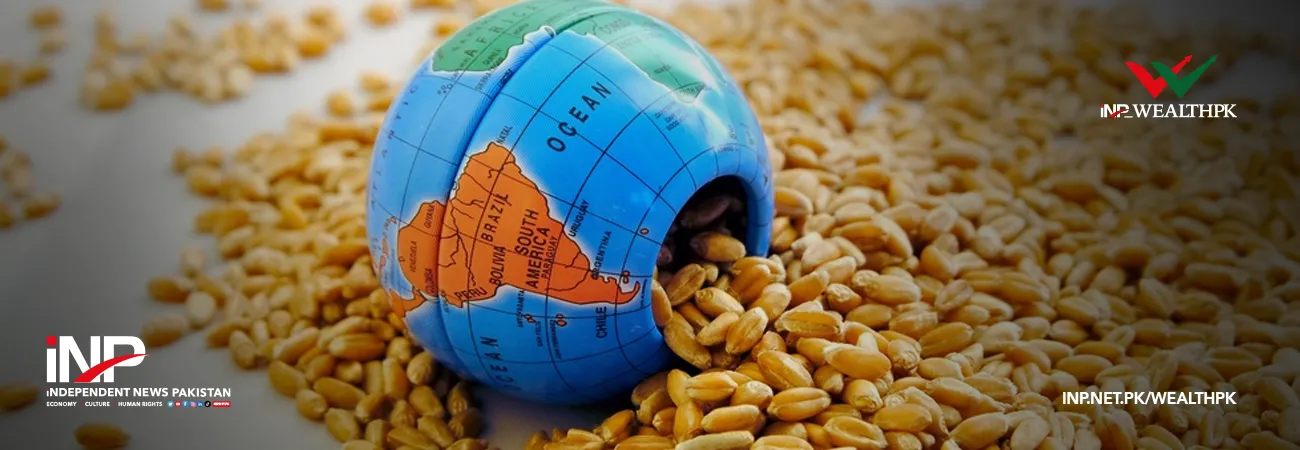INP-WealthPk
Azeem Ahmed Khan
As Pakistan’s population continues to grow rapidly, the country faces mounting pressure to ensure food security for its citizens. The nation’s agricultural and nutritional systems are under strain, from erratic climate patterns to inefficient food distribution and malnutrition.

In response, Pakistan is deploying bold solutions, with institutions like Zarai Taraqiati Bank Limited (ZTBL) playing a pivotal role in addressing the crisis, said Muhammad Fakhar Imam, head of Food Security at ZTBL, in an interview with WealthPK.
“Pakistan has made significant progress in food production over the last several decades. However, food security is still a key challenge due to the high population growth, rapid urbanisation, low purchasing power, high price fluctuations, erratic food production, and inefficient food distribution systems,” he said.
Fakhar emphasised that ZTBL is actively addressing food insecurity by financially empowering small and marginalised farmers – the group most vulnerable to hunger due to low income and high exposure to climate shocks. “The bank is already catering to their financial needs to increase productivity, reduce production costs, and boost income through both farm and non-farm practices,” he added.
ZTBL’s initiatives include promoting farm mechanisation, supporting the cultivation of alternative crops such as soybeans, mustard, and sesbania, and backing non-farm income-generating activities, including beekeeping, biofloc fish farming, local poultry rearing, and kitchen gardening, he said.
In addition, efforts to support women’s empowerment in the garment sector aim to enhance household resilience to food insecurity, he added. Food security, defined by the 1996 World Food Summit as a state in which all people have consistent physical and economic access to sufficient, safe, and nutritious food, remains out of reach for millions in Pakistan.
The Food and Agriculture Organization (FAO) estimates that approximately 43% of the population faces food insecurity, and Pakistan ranked 106th out of 116 countries in the 2021 Global Hunger Index.

Meanwhile, climate change continues to challenge Pakistan’s agricultural sector, Fakhar Imam said. Extreme weather events, such as the 2022 floods that destroyed millions of acres of crops, have had devastating consequences on food availability. “The need for climate-smart agriculture has never been more urgent,” Imam stressed.
The National Food Security Policy, approved in 2018, outlines a comprehensive framework for ensuring the availability, accessibility, and proper utilisation of food. Its major pillars include boosting agricultural productivity, enhancing food access through improved distribution and affordability, and reducing malnutrition by promoting nutritious food, breastfeeding, and access to healthcare, Imam said.
The policy also highlights food safety, institutional coordination, and the adoption of climate-resilient practices. The key actions involve strengthening testing facilities, improving food standards, and promoting hygiene practices across food systems, he added.
Statistics paint a concerning picture in Pakistan, Imam said and pointed out that the National Institute of Population Studies (NIPS) reports stunting in 45%, wasting in 15%, and underweight conditions in 30% of children in Pakistan. Furthermore, 17.7% of the population suffers from acute malnutrition. Vitamin and mineral deficiencies are widespread, with 52% lacking vitamin A, 63% vitamin D, 28.6% iron, and 18.6% zinc.
The Ministry of National Food Security & Research is playing a central role in coordinating national strategies and overseeing policy implementation, he said. The Federal-Provincial Implementation Committee, comprising representatives from multiple sectors, ensures collaboration and alignment of goals across Pakistan, he added.
Imam noted that although the provinces have primary responsibility for agriculture, the federal government plays a vital role in setting national priorities, shaping trade policies, and conducting research on strategically important issues.
“ZTBL also remains committed to playing a transformative role in improving food security through targeted agricultural finance and rural development because the health and economic stability of Pakistan depend on it,” Fakhar Imam said.
Credit: INP-WealthPk









